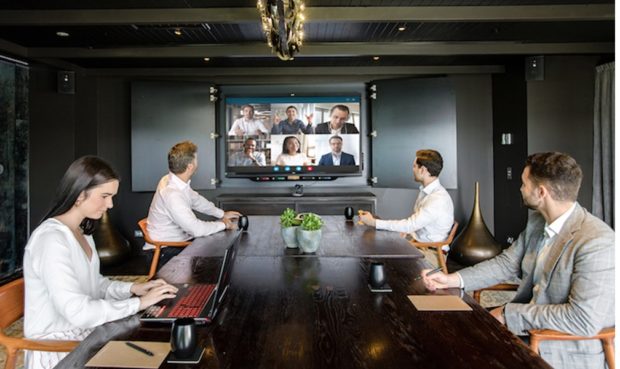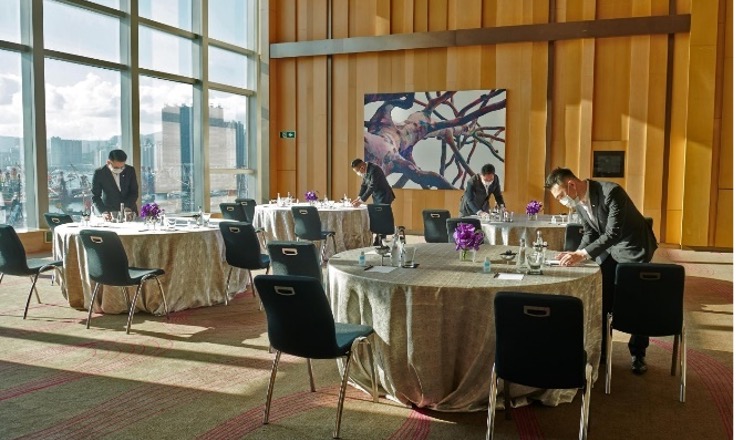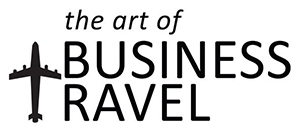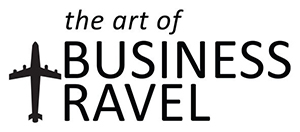
Ramesh Daryanani, Vice President of Global Sales, Asia Pacific for Marriott International, explores how the industry is rethinking the future of work, hotel meetings and the events scene for business executives and event planners.
One year on from the pandemic, remote working and virtual meetings have become an integral part of our daily routines. According to the Global Business Travel Association, hybrid meetings that could better accommodate both in-person and virtual attendees are expected to double in 2021 as it helps to reach a broader audience. A recent study by McKinsey found that 20 to 25 percent of the workforces in advanced economies may continue to work from home between three and five days a week – four to five times greater than before the pandemic, prompting a large change in the geography of work. This presents an exciting opportunity for the hospitality sector to create new offerings that blend business and leisure travel as workers gain more freedom over where they choose to work.
READ: World Travel Protection’s Adrian Leach on Security & Risk Prevention in the Post-Covid Era
In fact, a recent report from American Express and American Express Global Business Travel indicates that 86 percent of business travellers are feeling optimistic towards the resumption of travel. It was also revealed by the Global Business Travel Association that business travel spending is expected to increase 21 percent this year. Experts think this will occur mostly toward the end of the year as vaccination rates increase, which will enable companies to regain confidence to get back on the road. The travel sector is preparing for a new profile of business traveller, and corporate events that present a new set of needs

The ‘Bleisure’ Traveller
Even before the pandemic, business travellers were increasingly adding leisure time to their trips, fuelling a growing segment of ‘bleisure’ travel. The pandemic has further normalized the culture of remote working, and a study by Slack has found that as many as 72 percent of employees would like to continue adopting a hybrid model of working in future. To maximize work-life balance, we predict a rise in demand for hotels with facilities and flexible arrangements for business travellers to work, relax and explore conveniently. Loyalty programs will be even more critical to win back the support of business travellers.
Many hotel operators are already embracing this trend and introducing new offerings such as ‘workation’ bookings in beautifully furnished hotel suites with top-notch amenities, to break up the monotony of home working and remove distractions and stress. Late last year we rolled out work anywhere with Marriott Bonvoy, a programme that offers guests a choice of one-day stays to multi-day work and leisure destination getaways across the globe. In addition, we are investing in creative hotel spaces and innovative ways to provide accessible and practical solutions – giving our guests lively, creative and wellbeing-focused spaces for greater work productivity.
READ: IATA’s Vinoop Goes on the IATA Travel Pass & the Future of Air Travel
Cleanliness Remains the Top Priority
Expectations around safety and hygiene have evolved dramatically, as social distancing, masks and hand sanitizers become familiar essentials. According to a 2020 Consumer Behaviors and Attitudes Survey by Gartner, 64 percent of consumers agree that they feel they are at risk of Covid-19 exposure in public places, and 77 percent agree that socializing the way they did pre-pandemic was no longer comfortable. For companies, returning to normal working practices will be an essential yet long process that needs to be conducted safely to offer assurance to employees and mitigate against risk of illness. Organizations will look very closely at their partners’ policies and practices around hygiene and distancing, and work with providers they feel most confident about.
Hospitality companies are investing heavily in keeping their guests safe, as social distancing continues to be a priority at properties. Event planners have been looking to us for guidance on how to maintain social distancing, and in line with the company’s ‘Connect with Confidence’ commitment, we have worked swiftly to offer event organisers tips on setting up events in the normal. For instance, simple adjustments like replacing buffet options with covered individual portions have driven positive feedback too.

Hybrid Events Combine the Best of Both Worlds
For many event planners, it has been a challenge to deliver an enriching and meaningful guest experience that tried-and-tested physical formats allow. The key lies in utilizing the right technology to drive a shared human experience and connections. Through hybrid events, it has been possible to combine live interactions and the convenience of going digital. We have been investing in innovative solutions across our portfolio of hotels. For example, the JW Marriott Singapore South Beach and The Westin Singapore are equipped with state-of-the-art production facilities. With an on-site production crew, ultra-high-speed connectivity, teleprompters and digital broadcast cameras, corporate clients can broadcast in real-time.
As Marriott continues to move from high touch to ‘touchless’, we are also investing in event facilities, technology, and apps to reduce physical touch points like room keys and contactless registrations. Further, we are consulting with our clients to find creative solutions to their business needs. As we adapt to a post-pandemic world, hospitality companies need to offer more support to companies and event organizers to plan meetings of the future. This starts with the booking process, and at Marriott International we have already revamped our consultations and virtual site inspections for event planners to offer peace of mind and convenience.
The Road to Recovery – What’s Next?
As we recover from the pandemic, there is an unparalleled opportunity to rethink business meetings, meaning that companies should think outside the box to create inspirational work settings. By the end of 2024, the GBTA predicts that annual business travel spending will reach approximately $1.4 trillion. This is about the same as where things in the pre-pandemic era of 2019. Business travel has inevitably evolved but we will crave more human interaction as we come out of the pandemic. The new normal for business travel is expected to be a more mindful, thought-out way of travelling that builds genuine human connection, and strikes a better balance between personal life and work by embracing ‘bleisure’ and new meeting formats – both in and outside of our properties.
For more Mile High Club columns click here.





